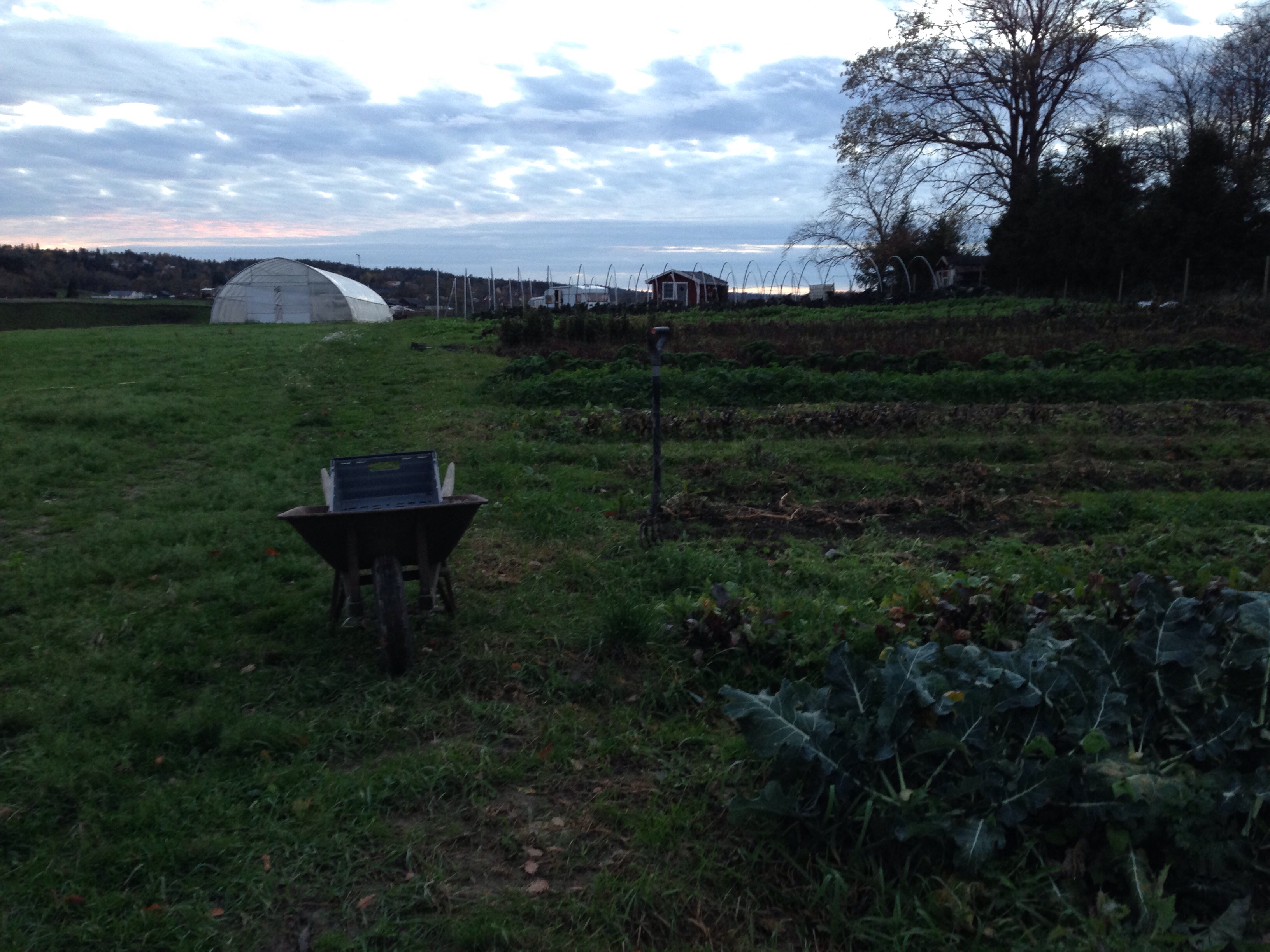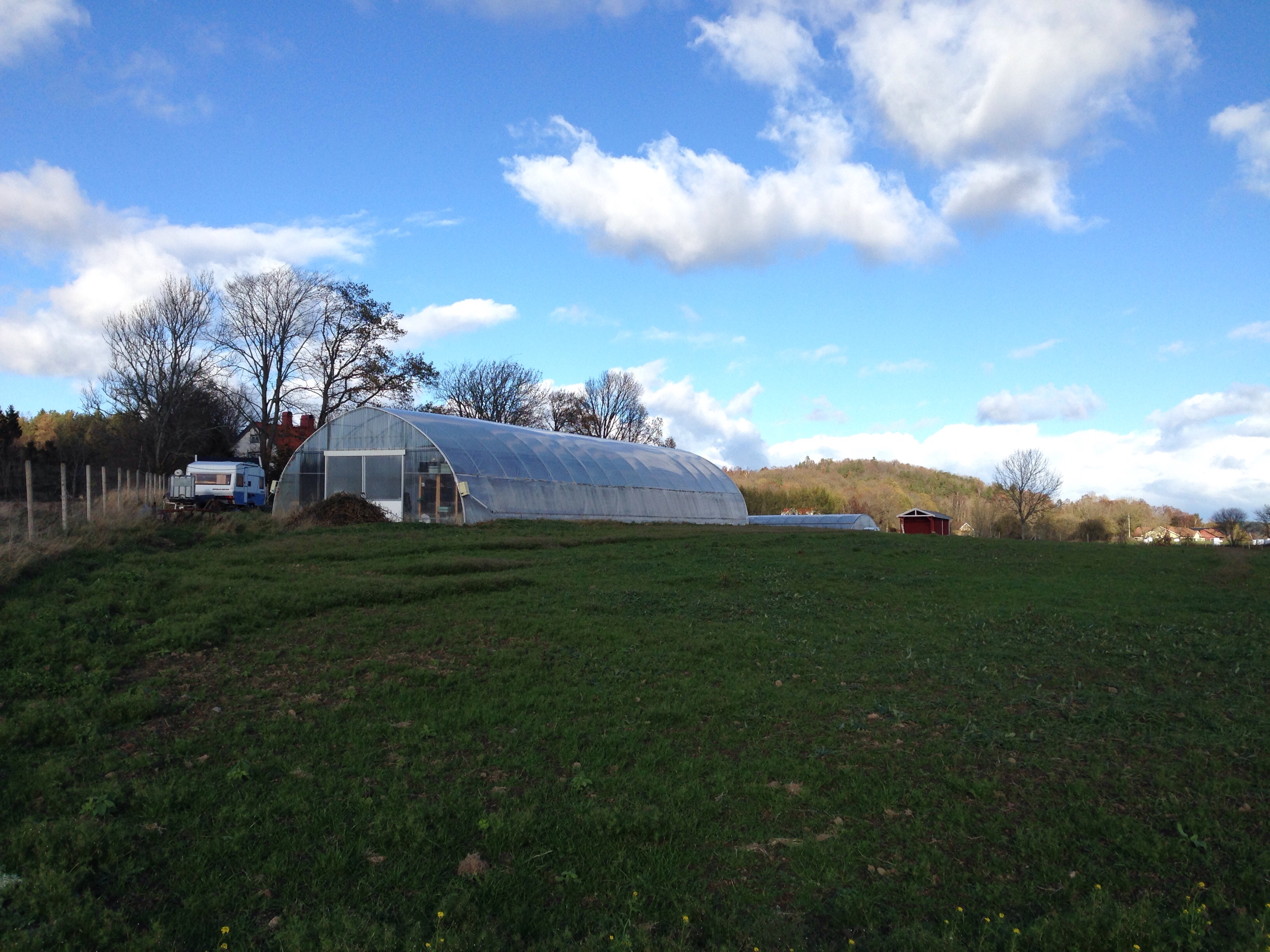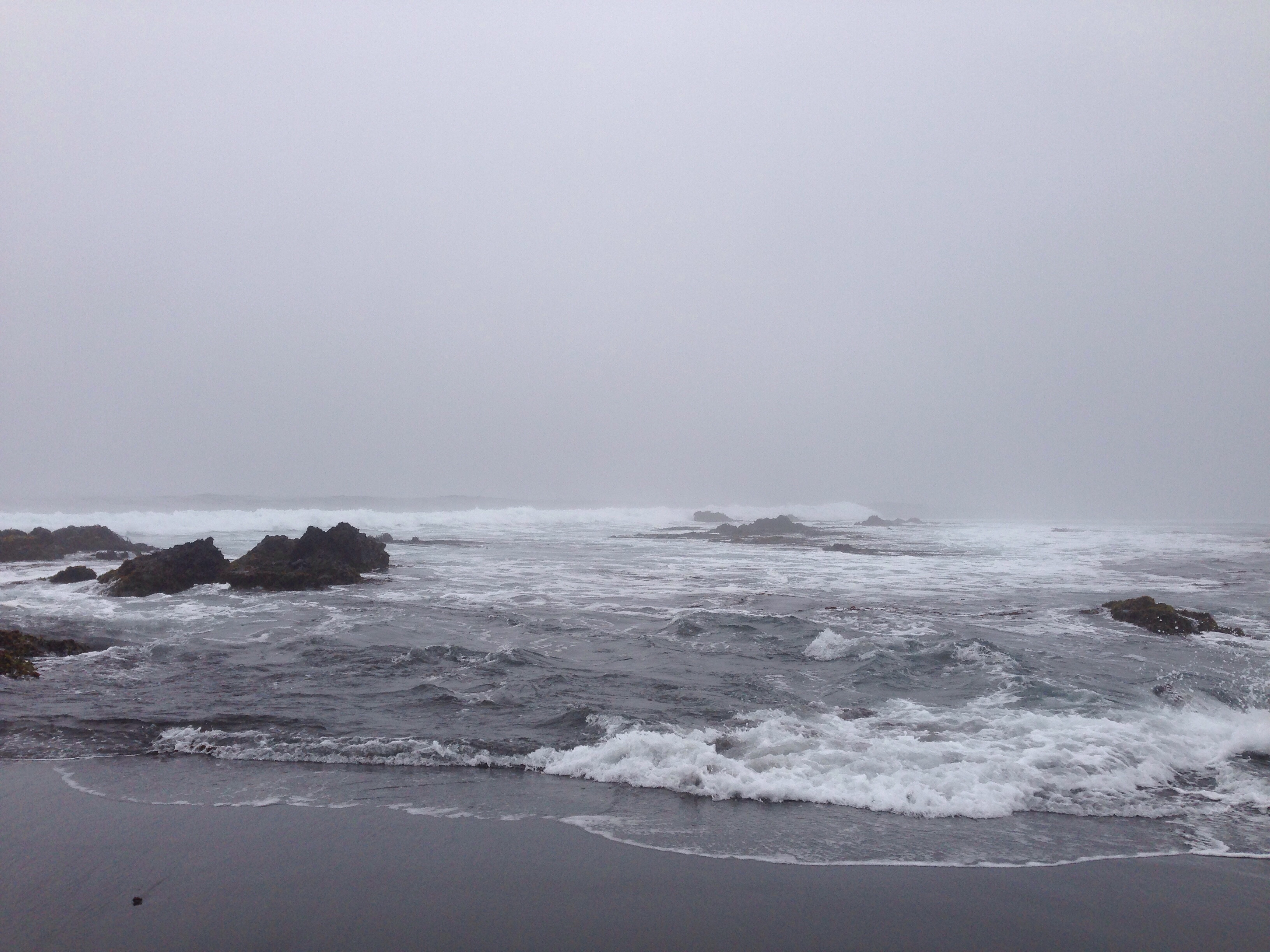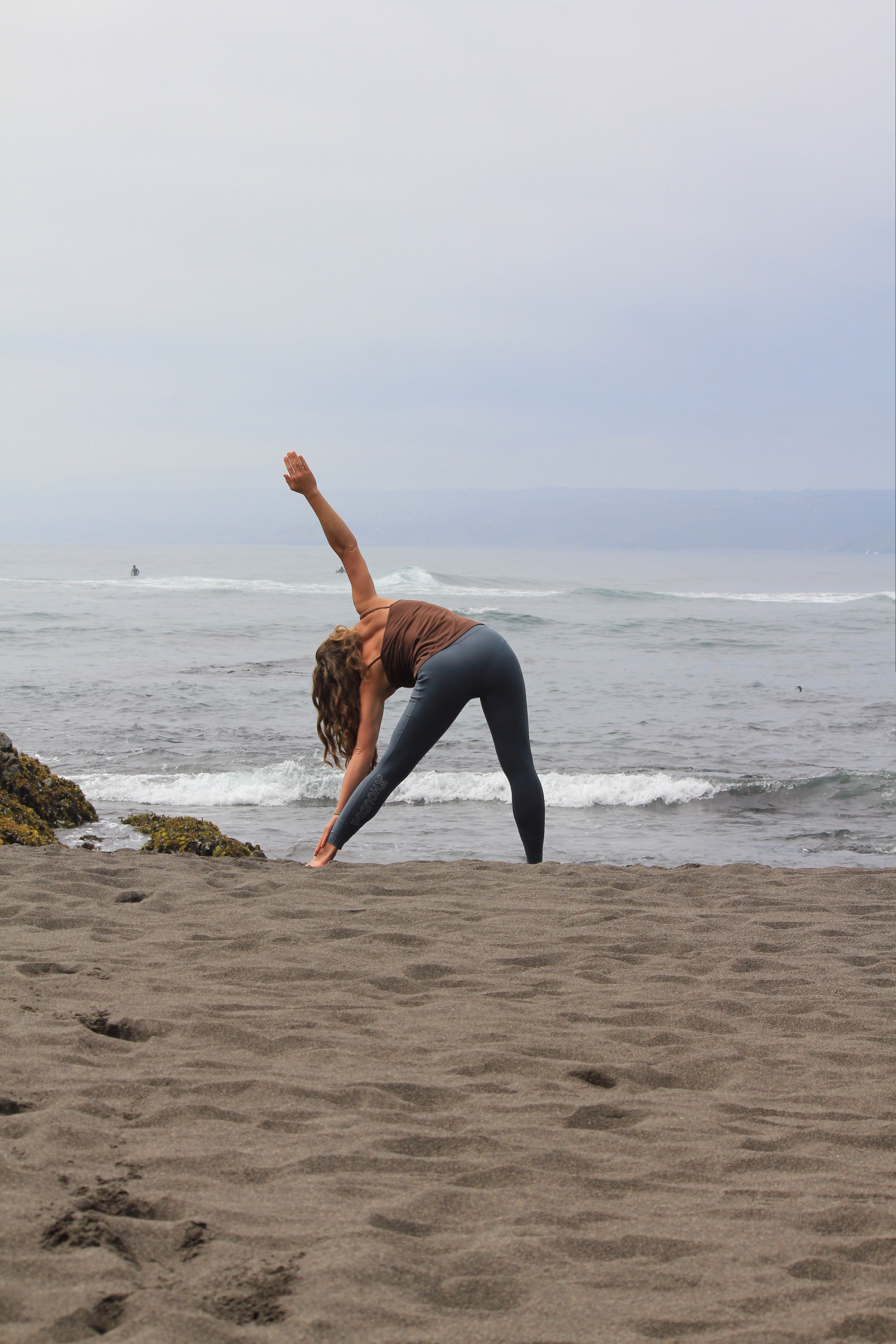
Scoutar arbets- och (egentligen?) livsmöjligheter, både realistiska och drömska sådana. Jag fortsätter att längta efter en tydligare samhällsförändrande position. Att odla grönsaker i smarta system blir värdefullt framför allt om jag kommunicerar och forskar kring det. Att ”bara” odla räcker inte. I år har jag skrivit bloggar åt magasin Dagg för att iaf få ut en del av mina odlings-lärdomar till en mer publik arena. Men. Drömmen är ju att få till stånd hypoteser, analyser och mätningar av odingssystemen vilket skapar ett vetenskapligt uppbackat faktaunderlag. Att jobba i en grupp med en biolog, en nutritionist, en miljövetare, en ekonom från industriell symbios-arenan, en ingenjör från energisektorn, en agronom, kanske någon mer. Ta det lokala praktiska arbetets grönsaksvolymer, vattenflöden, gödningsmedel, biologiska mångfald mm genom en räknemaskin och se vad den reella effekten är.
Hos Sasha har jag ex varit med och odlat ca 40 olika sorters grödor på strax över 1100 kvm bäddyta exklusive gångar. Hur många dagars standardbehov av 2000-2500 kilokalorier/dag har vi odlat? (Ja, jag ska räkna på det själv med siffror från Livsmedelsverket). Vilka habitat har vi skapat, vilka har vi utraderat? Vilken energi har vi stoppat in – bensin, muskulär, el osv – och vad fick vi ut? Odlar vi en bra sammansättning grönsaker rent kostmässigt? Bidrar vi till hälsofrämjande ätande? Hur kan vi återcirkulera kompost, urin och fekalier till odlingarna? Sker det genom ett mellansteg eller flera, ex biogasproduktion?
Jag har inte kompetensen att själv räkna på alla frågor som surrar i huvudet, men jag skulle mer än gärna samordna ett projekt med ett systemteoretiskt angreppssätt.

Stadsodling och stadsnära odling börjar äntligen ses som självklarheter. Det är fett bra. Problemet med utformningen just nu är enligt mig ett för obalanserat fokus på ekonomin bakom odlingarna. Att det ska vara möjligt att ha en funktionell privatekonomi och vara stadsbonde är ett baskrav, gott så. Men idag bygger många modeller på att odla det som växer snabbt och kan säljas dyrt. Vi mättar inte städernas befolkning genom att odla microgreens och salladsblad, även om det kan vara en ekonomiskt gångbar modell om man är en nutida stadsodlare. Hur forsätter vi att pusha för en utjämning av ekonomi vs kalori vs ekologi?




